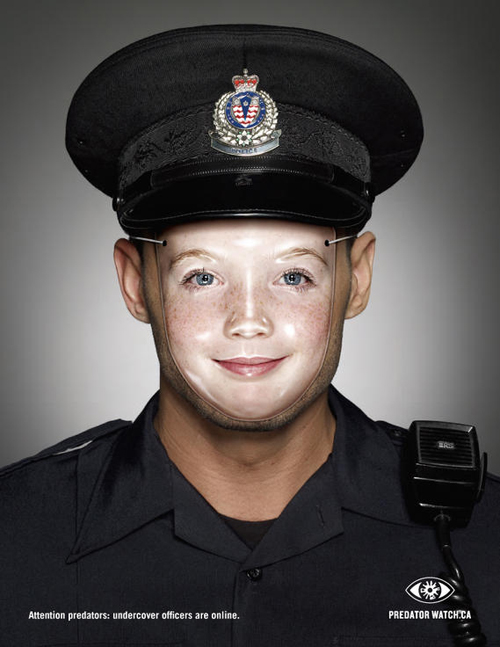Protecting Kids Will Legitimize Surveillance and Censorship: 2010 Online Law Trend
Your Digital Papers, Please?
Last week at the Davos World Economic Forum, Microsoft’s chief research and technology officer floated what to date has been an obviously bad idea: that Internet users should be licensed.
The suggestion is covered and advanced in a Time Magazine article that takes the familiar dystopic theme of the Net as the Wild West, requiring standards and regulations for safety, just like modern transportation systems. Governments run highways, so why not information super-highways?
Time‘s Barbara Kiviat suggests the Net needs a sheriff, and that licenses would do the trick. Licensing would authenticate identity, and give governments something to revoke, inspect, and otherwise use to claim standing in order to administer this stateless medium. After all, a bunch of private machines connected by private networks aren’t architecturally under the control of the state. In a world of online risk, we need governance through governments.
I think we’ll hear more of this theme, and that it will be advanced on the need to prevent crime and protect kids. More surveillance and censorship will be positioned as bulwarks of child safety and perhaps national security.
Making the Case for Big Brother in the Americas
The many benefits of Big Brother’s watchfulness are neatly summed up by PredatorWatch.ca.
As someone who has done casework on finding ways to protect organizations from pedophiles, I’m all for raising offender inhibitions. But having police pretend to be sexually available kids is is misguided. At best, it nails low-probability offenders; at worst it titillates and entraps a class of nasty, but perhaps otherwise benign, web users.
We’re Watching the Bad Guys; We’re Watching You

Internet filtering, censorship of Web content, and online surveillance are absolutely increasing in scale, scope, and sophistication in democratic countries as well as in authoritarian states. And to some degree, they support one another.
That’s the premise of Access Controlled, a book due out in April, edited by the dream team of Ronald J. Deibert, John G. Palfrey, Rafal Rohozinski, and Jonathan Zittrain. I expect their research and perspective on this global trend will fuel a richer discussion on the costs and benefits of making online surveillance the new digital norm.

 The future of digital experiences will be built by strategists who grasp the full array of emerging business, social, and technical models. Specialties in user experience, branding, application design, and data science are laying the foundation for richer user experiences and business models breakthrough products and revenue based marketing.
The future of digital experiences will be built by strategists who grasp the full array of emerging business, social, and technical models. Specialties in user experience, branding, application design, and data science are laying the foundation for richer user experiences and business models breakthrough products and revenue based marketing.
2 Responses to "Protecting Kids Will Legitimize Surveillance and Censorship: 2010 Online Law Trend"
February 18, 2010
Dave this is an interesting point and one with many sides to the argument. I find this topic gaining momentum for me with the resent explosion of Chat Roulette amongst the younger generations. I actually found out about CR from a younger cousin weeks before the general public. It is tough for parents to regulate what they don’t know about. Even with effective parental oversight I feel you need to have, as articulated above, other deterrents in place.
May 21, 2010
I like your style so much, I am your honest reader.
Thanks for sharing the post.